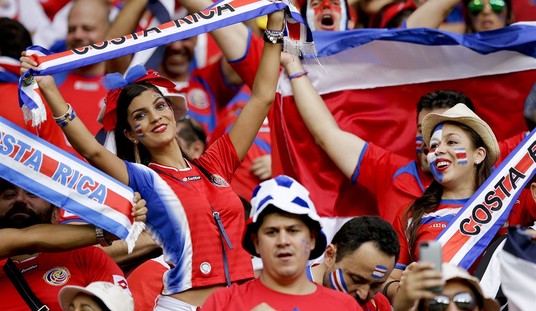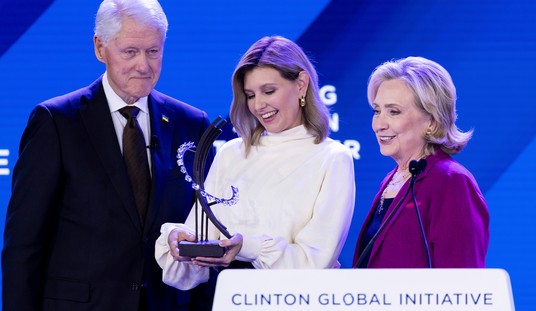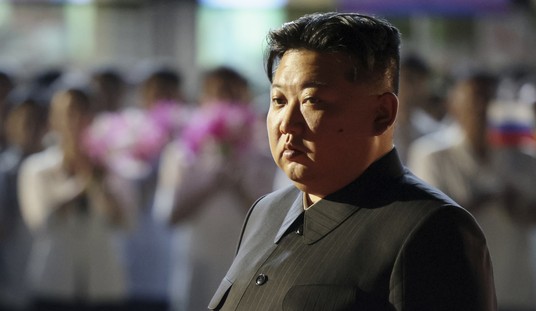National Public Radio’s ombudsman published a response to the government funded news channel’s decision to accept money from the Ploughshares Fund to cover the Iran deal in 2015. The ombudsman denies NPR intentionally did anything wrong but concludes it might be best not to accept similar donations in the future.
The piece was published Friday afternoon before the holiday weekend, a traditional time for document dumps that might embarrass an organization. NPR’s Elizabeth Jensen opens with the party line about the journalistic firewall the prevents donations from influencing reporting but then, to her credit, admits this case is a bit different:
This case is a bit different from, say, the money that NPR gets from the MacArthur Foundation in general operating support for investigative and international reportingor even the money it gets from the Gates Foundation to support the education blogand Goats and Soda global health blog. In this case, NPR’s money came from one side of a very partisan debate on a specific issue to fund reporting on a specific topic. And the money was not from a sponsor who in exchange would get on-air credit; in this case the sponsor money was going directly to support the reporting.
What critics are legitimately asking is whether there was a break in the firewall, since there is certainly an appearance that NPR opened itself up to be used as a propaganda organ of the administration via its reporting grant from Ploughshares. As one listener letter I received put it: “I am very disappointed in the decision by NPR to take $100,000 from the Ploughshares Fund, in order to sculpt the news cycle surrounding the Iran deal.”
Jensen maintains there was no breach of the firewall though the coverage does seem to have been quite positive:
As part of our assessment of what happened, my office looked at the 254 on-air newsmagazine stories from Jan. 1, 2015, to the present that we categorized as directly related to the Iran deal…Of those 254 stories, we categorized 118 as neutral; they were mostly NPR reporters talking to NPR hosts about developments in the lead-up to the deal or its implementation earlier this year. The remaining 136 stories presented a viewpoint of a source either for or against the deal. Of those voices in those stories, 160 people were quoted speaking in favor of the deal and 102 were against it.
That’s not very balanced obviously. Jensen says NPR didn’t have time to count the minutes devoted to each side but says, “it is possible they balanced out.” Well, it is possible but it’s also possible and probably more likely that they did not balance out. In fact, it’s possible the balance in the time was even more lopsided than the balance in the guests. Jensen admits, “I was surprised as to the number of positive voices I found” but then she moves on as if the apparent imbalance isn’t really a problem.
And where did all those positive voices come from? Well, as NPR now admits, many of them came from the group of pro-Iran deal voices assembled by the Ploughshares Fund:
Where I found more cause for concern — and where both Oreskes and Mohn agree that there was a breakdown, at least in internal processes and disclosure — is in the large number of Ploughshares-funded analysts and experts who made it on the air to talk up the deal, without any acknowledgment of that by NPR.
The coalition that Ploughshares assembled to push the deal was astonishing, and it would likely have been almost impossible to cover the story without talking to those sources.
You begin to wonder if Jensen is being intentionally dim here. No one has suggested NPR should not have talked to pro-Iran deal groups. The issue is whether or not NPR became an unwitting (or even witting) part of a PR effort to sell the deal. NPR could still have interviewed all of these people, but it should have a) balanced the scales a bit and b) noted in every single case that the spokesman were part of a coordinated media effort by a current donor to the network for exactly this kind of coverage.
Indeed, even when the president of Ploughshares Fund was invited on to discuss the deal, NPR claims it had an institutional memory lapse that he was paying the station for coverage:
The newsroom is also looking into why the Cirincione interview in particular did not raise any red flags. Standards and practices editor Mark Memmott said it may have been the case that Ploughshares had been a supporter for so long that supervisors did not know, “that institutional memory had been lost” and needs to be refreshed.
According to Jensen, the system at NPR is that reporters are not told if NPR is being paid for particular reporting, that way they aren’t biased by the knowledge of who is paying. This sets up an absurd situation in which the person writing the checks to NPR can waltz in and do an interview which he knows his group paid to support even as no one interviewing him knows that. In this case, ignorance is not bliss.
After repeatedly claiming that NPR did not do anything wrong, Jensen suddenly concludes they need to stop taking money from groups like Ploughshares Fund:
In the case of grants such as the one from Ploughshares, which are intended to fund reporting on specific, highly controversial issues, my suggestion is that NPR consider not accepting them in the future if they contain such specific language.
No, the firewall was not breached in this case, but the damage that happened from perception is just too great a risk to NPR’s reputation.
That’s a good idea but a better question to ask, rather than whether the “firewall” was breached, is how the coverage would have been worse if it had been breached. This is not just a question of following the established process, there is also a question of the results. The fact that Ploughshares paid for coverage of the deal, that coverage was slanted in favor of pro-deal experts, that many of these experts were part of the Ploughshares media effort and that these relationships were not disclosed in many of the reports suggests Ploughshares got exactly what they wanted out of the donation whether or not NPR feels their “firewall” was breached.









Join the conversation as a VIP Member